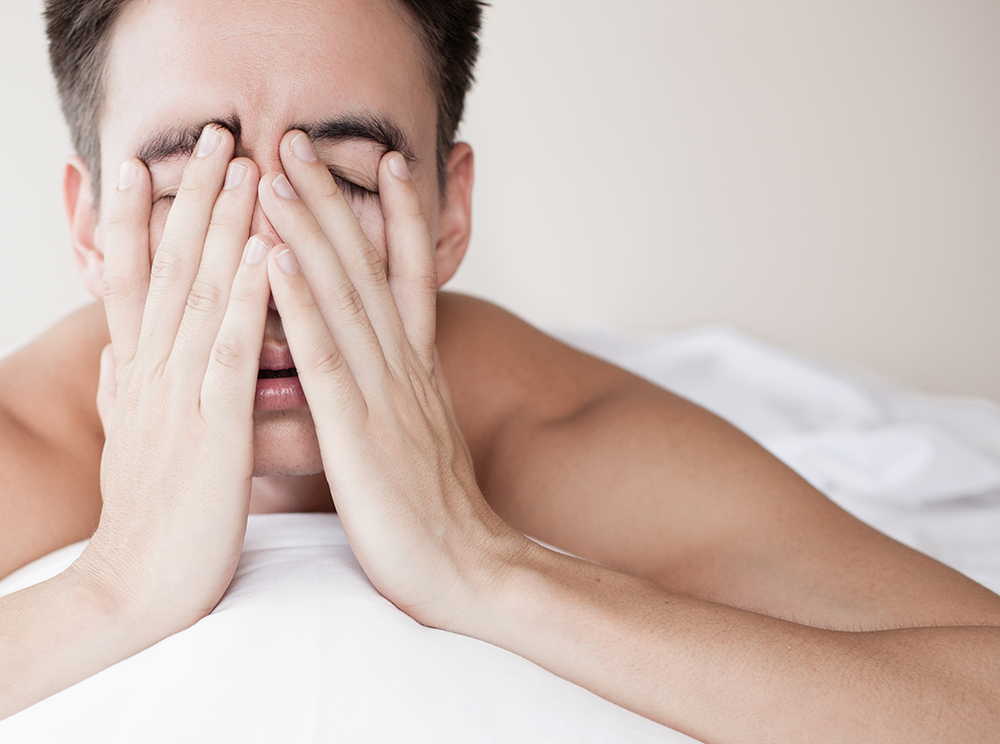Blog
It's very common if you find that you can't sleep.
Insomnia from Good Sleep Expert helps everyone have a hard time falling asleep at some point. Not only will you have a hard time falling asleep, but you may wake up several times during the night and feel tired the next day.

When the night is a struggle and you can't sleep, you won't get the deep refreshing and restorative sleep you need. So it's important to find out what's keeping you awake before things get out of hand and start affecting your health.
If you're having trouble falling asleep, check out the following checklist from good sleep experts to see if making the suggested changes will help you sleep better.
can't sleep checklist
Alcohol, caffeine and nicotine
A glass of wine with dinner is fine, but a couple of nightcaps can disrupt the quality of your sleep and prevent you from falling into a deeper sleep. It can also cause you to wake up during the night.
Caffeine is a stimulant that can last five to eight hours in your body! Some people still feel the effects after 12 hours. And watch out for hidden caffeine in foods like energy drinks, tea, yogurt, and chocolate. Try to stop drinking tea or coffee at lunchtime.
Nicotine stimulates brain activity and increases blood pressure and heart rate, all of which can prevent you from getting a good night's sleep. Research shows that when smokers quit smoking, their sleep quality improves.
food
This can also affect your sleep, so don't eat too much food at least 2 hours before bed. If you're sensitive to tomato products or spicy foods, lying down can worsen heartburn, make it harder to fall asleep or wake you up in the middle of the night.
technology
Don't bring your laptop/smartphone to bed. Not only does it cause stress near bedtime, research shows that the blue light emitted by these devices can affect the quality of your sleep.
exercise
Exercise can improve sleep quality, but not within three hours of bedtime. Exercise energizes you and raises your body temperature. Try to schedule exercise in the morning or late afternoon. Exercising later than this (unless it's for sex) may disturb your sleep.
bedtime routine
Do you have a bedtime habit? You need to provide your body clock with the right sleep cues. Try to get up at roughly the same time every day, whether you're still tired or not. Start calming down 90 minutes before bedtime in preparation for bedtime. A quiet time, followed by a warm bath or shower with some relaxing music. Climb into a cozy dark quiet bedroom and wake up refreshed in the morning.
bedroom
A distracting sleeping environment, such as a room that is too loud or too bright, can be a hindrance to a good night's sleep. Disruptions from children or other family members can also disrupt sleep, and you may find yourself unable to fall asleep if there are too many of them in one night.
uncomfortable in bed
The comfort and size of the bed and the habits (if any) of your sleeping partner are often issues for you too!
temperature
A room that is too hot or too cold can make it difficult to sleep; the ideal sleeping temperature in your room should be around 16-18 degrees Celsius. Put some socks on, as warm feet will increase your chances of getting a good night's sleep.
Mattresses and Pillows
Generally, you should replace your mattress every 8-12 years for optimal support and comfort. Also check your pillows to make sure they provide optimal comfort and support. They need to be replaced every 6 months to 3 years!
If you can't sleep, consider checking your pillows for breakage.
pain and suffering
Pain can affect your ability to fall asleep or stay asleep. For example, arthritis and other conditions that cause pain, back pain, or discomfort can make it difficult to sleep. For women, pregnancy and hormonal changes, including those that lead to premenstrual syndrome (PMS) or menopause and the accompanying hot flashes, can also affect sleep.
drug
Decongestants, steroids, and some medications for high blood pressure, asthma, or depression may cause trouble sleeping as a side effect.
exposure
Your biological clock needs cues from natural light. If you have sleep problems, it's a good idea to expose your eyes to sunlight for at least 15 minutes first thing in the morning.
Can't sleep due to stress
This is the main cause of sleep problems. Often, when the stressful situation passes, sleep problems go away. If you're under stress, take some time before bed to properly relax. If something is bothering you and you can't sleep, it's probably something you can't fix right away, try writing it down before bed and tell yourself to deal with it tomorrow. Daytime stress management techniques are also recommended, such as relaxation, deep breathing, meditation, journaling, talking with friends and loved ones, and be sure to see a doctor if you are stressed.
allergy
There may be something in your house or bedroom that can trigger an allergic reaction and make it difficult to sleep; dust mites and household dust are the most common. New carpets, new curtains, cleaning sprays, air fresheners, and new paint release chemicals that can also cause problems. Regardless of which allergen is the trigger, avoidance is always the best treatment for allergies. Thorough and regular cleaning often makes a huge difference in keeping your home as mold and dust free as possible.
